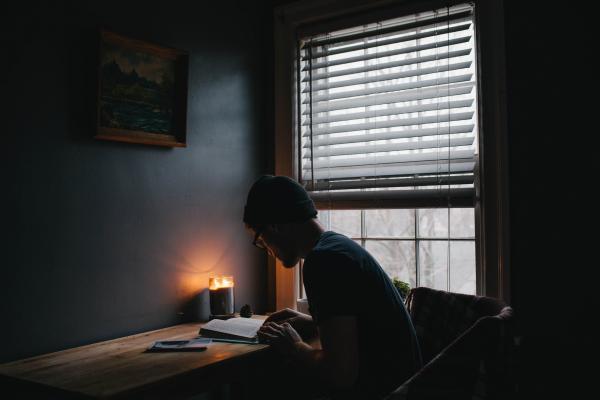Apr 28, 2017
There is a soundtrack to love.
This Easter — a longer season in the church year than Lent — the soundtrack to love is the "All-Night Vigil, Op. 37" by Sergei Rachmaninoff. In a new version, performed by Gloriae Dei Cantores and conducted by Peter Jermihov, I am reminded of the ever-expansive nature of the love of God, the profundity of the voice of God, not as a singularity, but as a gathering of many voices enraptured in song: “Alleluia!"
If you are unfamiliar with Sergei Rachmaninoff, this work is a great place to start. Though famed for his piano and orchestral compositions, Rachmaninoff truly shines as a choral composer.
As the story goes, as a young man, Sergei would sit on a boat in the center of the lake where he grew up. He would listen to the church bells peal, calling people to prayer and overlapping one another, creating incredibly beautiful music. Inspired by this, he later composed music for the human voice looking for that same bell-like sound and rhythmic harmony.
This particular recording of the “All-Night Vigil,” released earlier this year, is interesting to me in part because of the claims the producers and conductors make about it. Like so many these days, they are looking for an authentic expression of faith. Here, authenticity is expressed both in the historical accuracy of the composition of the choir (more voices on the lower end, fewer on the higher end), and in the faithful expression of the singing: Each performer is a person of faith. Ordained clergy sing the solos assigned to them, and members of the St. Romanos Capella, the Patriarch Tikhon Choir, and the Washington Master Chorale lend their voices.
LISTEN: Excerpt, "All-Night Vigil, Opt. 37: Blessed Art Thou"
“All-Night Vigil” is a stunning work. Truly. I've had the good fortune of performing it as a member of the "octavists" section (listen for the lowest voices). From bottom to top, the sound of the human voice shakes loose the soul. This is the sound of the earth quaking, of the temple veil torn asunder.
Here in Berkeley, I can hear the helicopter overhead as I walk to work. I'm teaching Introduction to Homiletics this afternoon at Church Divinity School of the Pacific, a member school of the Graduate Theological Union. Colleagues at Cal have tweeted about the many people streaming onto campus today — protestors, anarchists, activists, few if any students. The campus police are checking bags. Ann Coulter is not speaking today, but the damage is done. The extremes have been activated, and a place of higher learning with 40,000 students is becoming ground zero for...something. No one can say.
My school is significantly smaller. There are eleven students in my Homiletics class. Three of them will preach today, on 1 Corinthians 13 — the "love" passage.
Love is patient; love is kind; love is not envious or boastful or arrogant or rude. It does not insist on its own way; it is not irritable or resentful; it does not rejoice in wrongdoing, but rejoices in the truth. It bears all things, believes all things, hopes all things, endures all things.
Many of us will enjoy the privilege of gathering with friends and family over meals. We will hold hands. We will embrace one another. But not everyone has that luxury. The “All-Night Vigil” is a call to awareness, a kind of action itself, that says our individual experience is not the sole experience of humanity. Instead, to stand vigil — to sing praise to God throughout the night's darkness, in faith that a resurrection is coming — is to recognize that we are never alone, that we are not solitary creatures separate from one another in this world.
Here in the midst of media attention and whirling helicopter blades, I find myself in need of a soundtrack that proclaims something more generous, something more — dare I say it? — authentic to whom we are called to be with one another. A soundtrack cannot save the listener. No. But it can call us to salvation.
I find such a call here, in this song.
Got something to say about what you're reading? We value your feedback!

